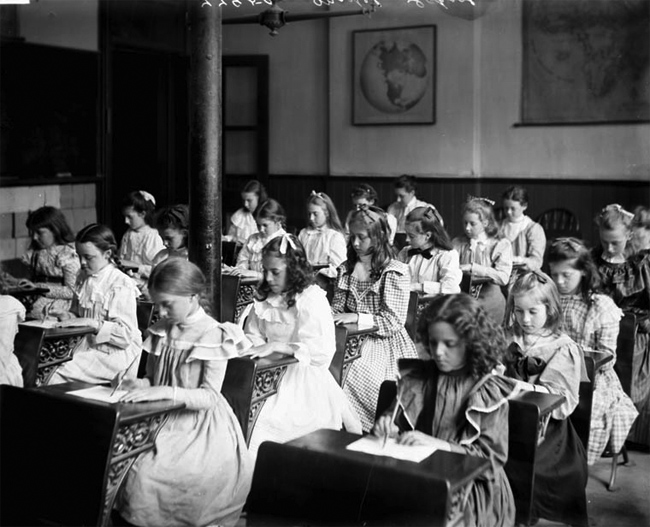The Invisible iPad: It’s Not About the Device
No one gets excited over using a welder, but its ability to connect difference pieces together to create something unique and useful from raw material is where its value as a tool really shines. Our challenge with technology like the iPad is that it has so many different abilities, that the user is faced with a real dilemma of losing sight of what the tool accomplishes, for the experience of using the tool.
Although we still do sometimes have traditional discussions that require them to raise their hands, much of our collaborative work happens via technology . . . . Everyone is sharing and introverts have more time to shape their words and ideas the way they'd like. Fast paced out loud class discussions often have less depth than the online version.
12 Ways To Share Almost Any File With Your Students
As a 21st century teacher, you probably need to share stuff, and have stuff shared with. “Stuff” like pdfs, various word processing documents, video files, and other digital fare. The traditional way to do this has been email, but limits here–including speed, file size, and the relative clunkiness of sharing with large groups–make sharing files through email less than “best practice.”
Iterating and Ideating: Teachers Think Like Designers
It’s just a much a matter of how they perceive themselves . . . .
With the help of on-the-ground teachers, Speicher and her design colleagues at Ideo have come up with a toolkit, and an entire website called Design Thinking for Educators devoted to explaining how to use it, to help educators build the design process into their day.
Top 10 Rules for Developing Your First Online Course
Humans are fundamentally pattern-recognition animals, meaning that we will look for patterns to help guide our actions. Create a template of what you will want from students in each module and follow it. It might be that your modules start with a video overview of the material, links to various content, three discussion questions, etc. Changes in midstream invariably lead to students missing content or assignments.
Saturday Showdown: Apple TV versus Roku 1
----------------------------
"The Introvert 3B" by h.koppdelaney via Compfight cc











